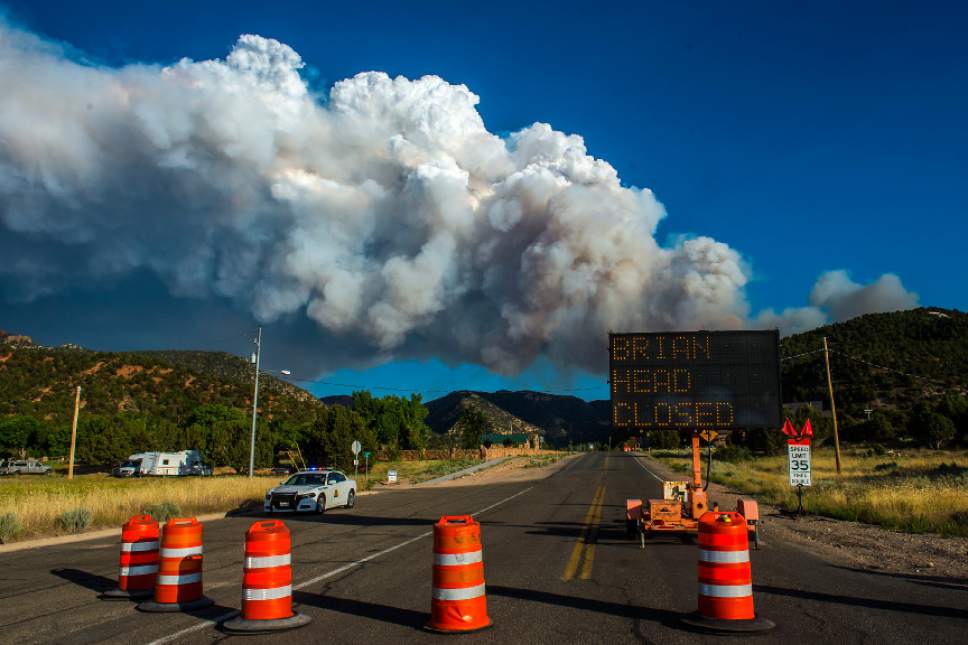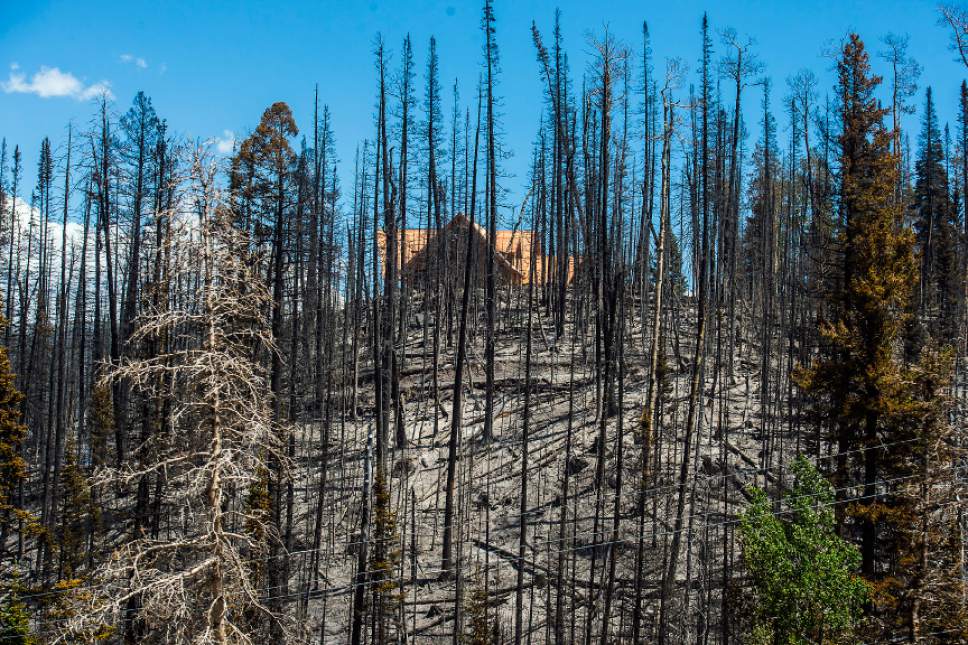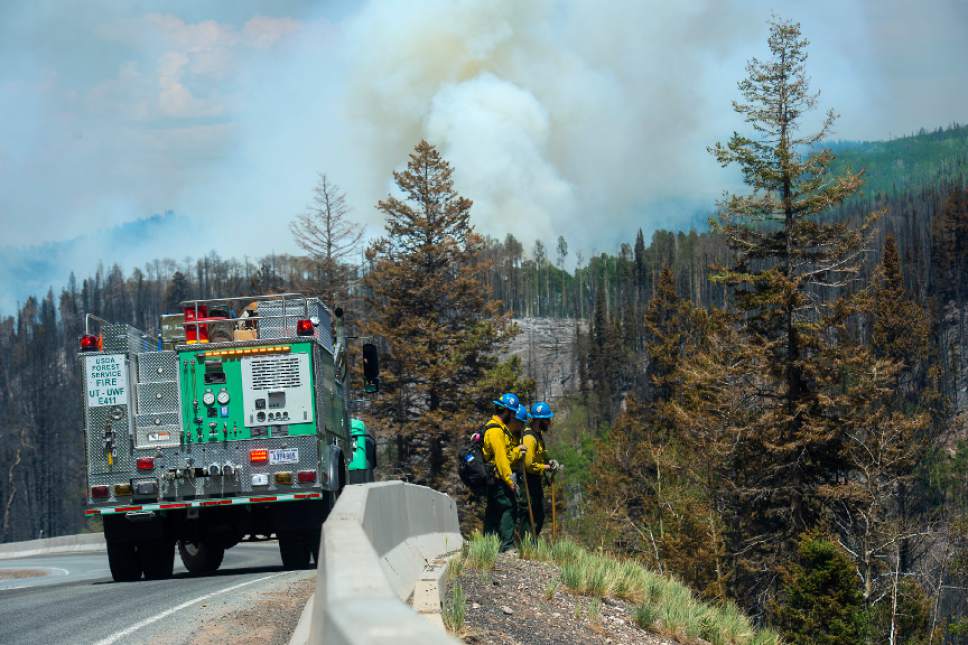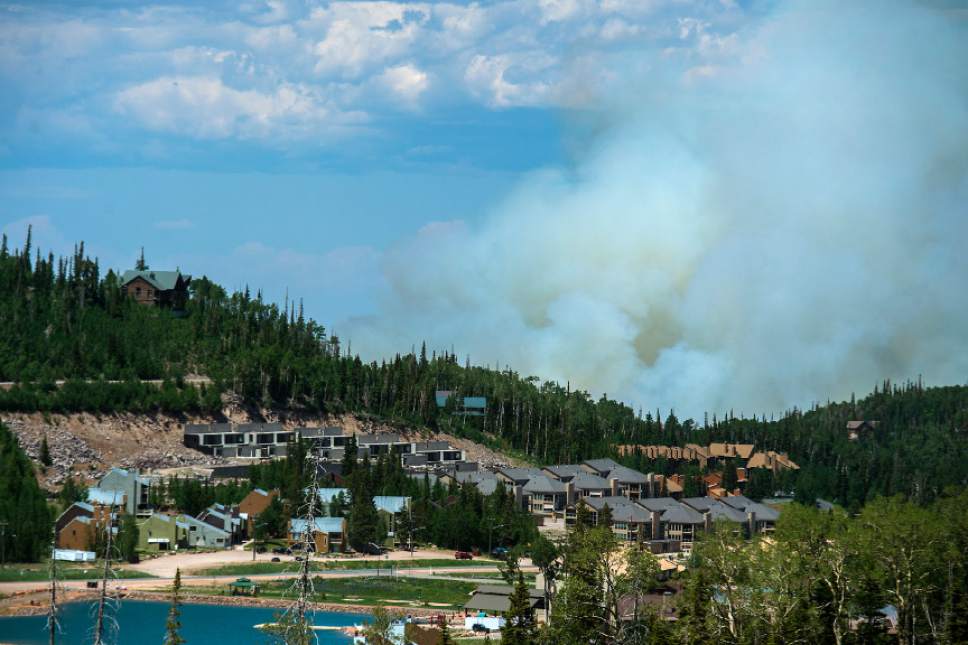This is an archived article that was published on sltrib.com in 2017, and information in the article may be outdated. It is provided only for personal research purposes and may not be reprinted.
Maybe you just wanted to burn some garbage, weeds or those old leaves.
You didn't mean for the fire to escape your backyard, but it did. But whether the flames burn just a few acres or rip through miles of mountainside, the maximum criminal penalty you can face is the same: a class A misdemeanor for reckless burning.
In Iron County, this means that a man who last year accidentally started a 3-acre blaze while allegedly burning debris will likely face the same potential penalties as the man who authorities believe sparked the nearly 67,000-acre Brian Head Fire — a blaze that is still burning and has destroyed 13 homes.
"It depends on intent," Iron County Attorney Scott Garrett said Monday. "If the intent was reckless, then it's all the same."
Civil penalties can vary widely for fires that burn across public land, depending heavily on the financial situation of the person who started it, says U.S. Attorney's Office spokeswoman Melodie Rydalch.
In most cases of fire, the government generally looks to settle it as a negligence case, Rydalch said. The resolution may include accepting the person's insurance policy limits, she said, though it may be appropriate to ask people to pay additional amounts on top of what their insurance providers pay.
For example, the 2012 Saratoga Springs Dump Fire cost more than $3.5 million to fight, according to Utah County Attorney Cort Griffin, but settlements with the two men responsible were $135,000 and $300,000.
Criminal cases are more uniform.
Garrett's office has not yet filed charges against the man they believe started the Brian Head Fire. He said Monday that while he has received an investigative report from law enforcement, it could be several weeks before prosecutors decide if charges should be filed.
But on Monday, the Iron County attorney's office filed charges against another man: a 74-year-old who authorities believe started the 3-acre blaze, dubbed the Willow Creek Fire, in October when he burned debris on private property. He is charged with class A misdemeanor reckless burning and class B misdemeanor failure to obtain a burn permit.
If convicted of reckless burning, he could face a maximum penalty of a year behind bars.
Just a few weeks ago, Iron County charged another man with a count of misdemeanor reckless burning after he allegedly set fire to a stack of weeds in mid-June. The flames spread through 6 acres of grass and destroyed farm buildings before it was put out.
Even if prosecutors charge someone with reckless burning, it's not a guarantee that the charge will stick or the person will serve any jail time. For instance, two target shooters who were accused of starting the 5,500-acre Dump Fire in 2012 and charged with reckless burning eventually resolved their cases with plea deals. Prosecutors agreed to drop the reckless-burning count, and the men pleaded no contest to class B misdemeanors of using prohibited targets. A judge sentenced the men to probation, and they eventually reached settlements in which they or their insurers paid tens of thousands of dollars back to Utah County and several cities.
If prosecutors can prove, however, that a fire was set on purpose, a person could be charged with felony arson. That happened in 2012, when a Wayne County man was sentenced to jail and probation for setting the $3.2 million Lost Lake Fire on Boulder Mountain. The man confessed to police that he took a lighter and started several fires on the mountain ridge above Teasdale after he became frustrated when he encountered fallen timber blocking the trail near Donkey Reservoir. The fire burned through more than 2,000 acres and took two weeks to extinguish.
Sometimes no criminal charges are filed — as was the case for a development group whose excavating operations triggered the 2,200-acre Quail Fire in 2012 — but the government can seek repayment. Federal prosecutors earlier this year filed a civil lawsuit against the developers seeking to recoup more than $1.6 million.
— Reporter Mariah Noble contributed to this report.









